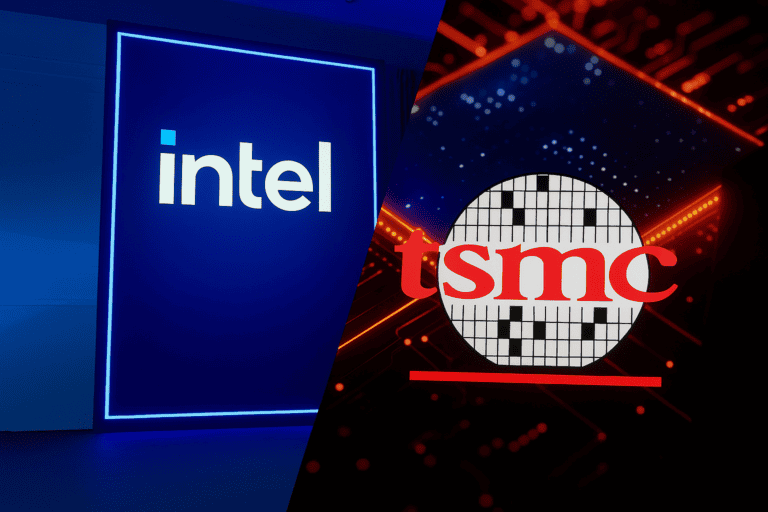TSMC has denied reports that it is in talks with Intel about a joint venture to produce chips in the US. CEO C.C. Wei made it clear during the presentation of the quarterly figures that no collaboration is in the pipeline.
“TSMC is not involved in any discussions with other companies regarding a joint venture, technology license or technology,” C.C. Wei said during the presentation of the company’s first quarter results. He thereby refuted rumors of a possible collaboration with Intel.
Earlier this month, The Information reported that Intel and TSMC had held talks about forming a joint venture. On April 3, the media outlet reported that both companies had discussed a preliminary agreement to jointly operate Intel’s chip factories, with TSMC acquiring a 21 percent stake.
Setback for Intel
Intel was not immediately available for comment when CNBC approached the company on Thursday about Wei’s statements. Intel had previously indicated that it would not comment on rumors.
TSMC’s denial comes at a difficult time for Intel. The former dominant “Chipzilla” has lost ground to competitors in every sector in recent years, from server chips versus AMD to production quality versus TSMC. Last year, Intel had its worst performance ever as a publicly traded company, with its shares losing 61 percent of their value.
A potential partnership with TSMC could help Intel improve its production capacity. Earlier rumors suggested that the US government under President Trump had even exerted pressure to bring about such a partnership. Concerns about Intel’s ongoing problems played a role in this, as domestic chip production capacity is considered essential for national security.
Intel has long struggled with its manufacturing processes, while TSMC has further extended its lead. Since 2015, TSMC has been using ASML’s EUV machines to make ever smaller semiconductors, while Intel only started mass production with this equipment at the end of 2023. Intel’s 18A process is intended to bring the company back on par with TSMC, but the earlier cancellation of 20A does not inspire much confidence.
Headwinds from tariffs
TSMC reported better-than-expected results for the first quarter, mainly thanks to continued demand for AI chips. However, the company faces potential headwinds from Trump’s tariffs – which are also aimed at Taiwan and have since been (partially) lifted – and stricter export controls for TSMC customers Nvidia and AMD.
There had already been talk of other parties possibly investing in a partnership between Intel and TSMC. Broadcom, for example, is said to be interested in parts of Intel, which could lead to the American chip giant being split up into separate parts. Under its brand-new CEO Lip-Bu Tan, the company is aiming to get its house in order.
